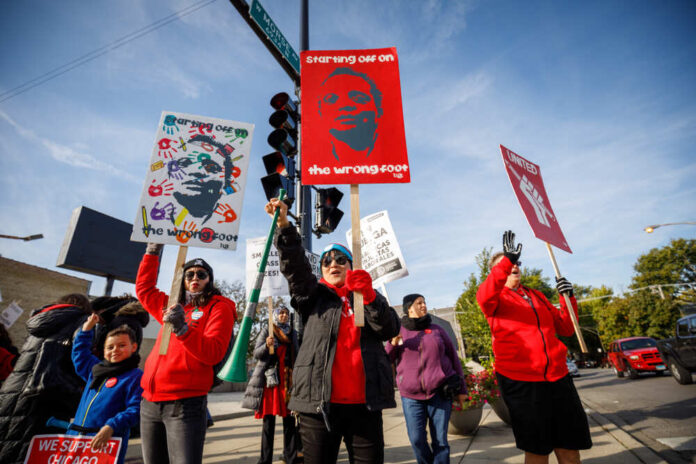
Lori Lightfoot, the former mayor of Chicago, cited her race and gender as the reasons for her Tuesday election loss. She finished third in the election, failing to secure enough support to continue to a runoff election. When questioned about the potential unfair treatment during the election campaign, Lori Lightfoot acknowledged the challenges she faced as a Black woman in America, responding with a brief, “Of course.”
Lori Lightfoot remained steadfast in her commitment to bringing positive changes to Chicago, even after her election loss. She emphasized that her team had fought for the right causes and had made progress toward improving the city. Additionally, Lightfoot expressed her gratitude for the opportunity to serve as the mayor of Chicago, describing it as a profound and singular honor.
Dear @LoriLightfoot
You didn’t lose because of your race, gender, or orientation.
You lost because you’re a horrible, ineffective, and ignorant politician who couldn’t get her city under control. I’d call you the worst mayor to ever live, but I think de Blasio has you beat.… https://t.co/dCmVmWawDg pic.twitter.com/y1aGogJzBX
— Zeek Arkham 🇺🇸 (@ZeekArkham) March 2, 2023
Similarly to her comments in the New Yorker, Lori Lightfoot stated that being a Black woman in a leadership role often meant facing a lack of support from specific individuals. She emphasized the need to recognize and address these challenges.
Critics of Lightfoot argue that her defeat resulted from the rising crime and homelessness rates in Chicago, as well as her strained relationship with law enforcement. In 2021, homicides in Chicago reached their highest numbers in 25 years, surpassing other crime-ridden cities like New York City and Los Angeles.
Lori Lightfoot made history by becoming the Chicago’s first black gay female mayor. Last night, after 4 yrs of incompetence, she made history by becoming the city’s first mayor in 40 yrs—of any color, either gender, gay or straight—not to win re-election.#ChicagoMayoralElection pic.twitter.com/5c1E6q6nCy
— Larry Elder (@larryelder) March 1, 2023
With Lightfoot out of the race, Paul Vallas, the CEO of Chicago Public Schools and the city budget director, will face off against Brandon Johnson, a Cook County Board of Commissioners member, in the April 4 runoff. Neither candidate reached 50% to win outright on Tuesday, although Vallas came closest with 33%.
Some of Lori Lightfoot’s critics took to social media to express their jubilation at her election loss, with a few even seeing it as a positive sign for the future of Chicago. Criminal defense attorney and Fox News contributor Jonathan Turley tweeted that Lightfoot’s departure could signify a chance for significant improvement, likening it to the transformation that occurred when the direction of the Chicago River was reversed in 1900.














